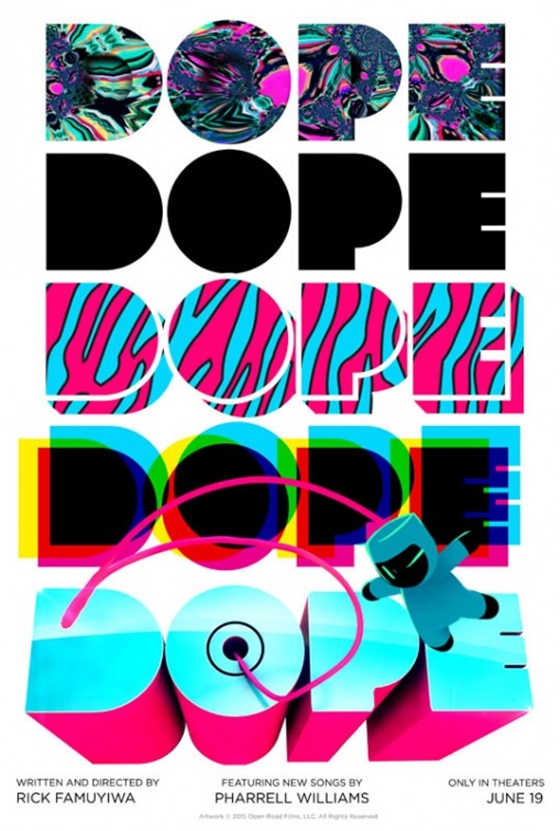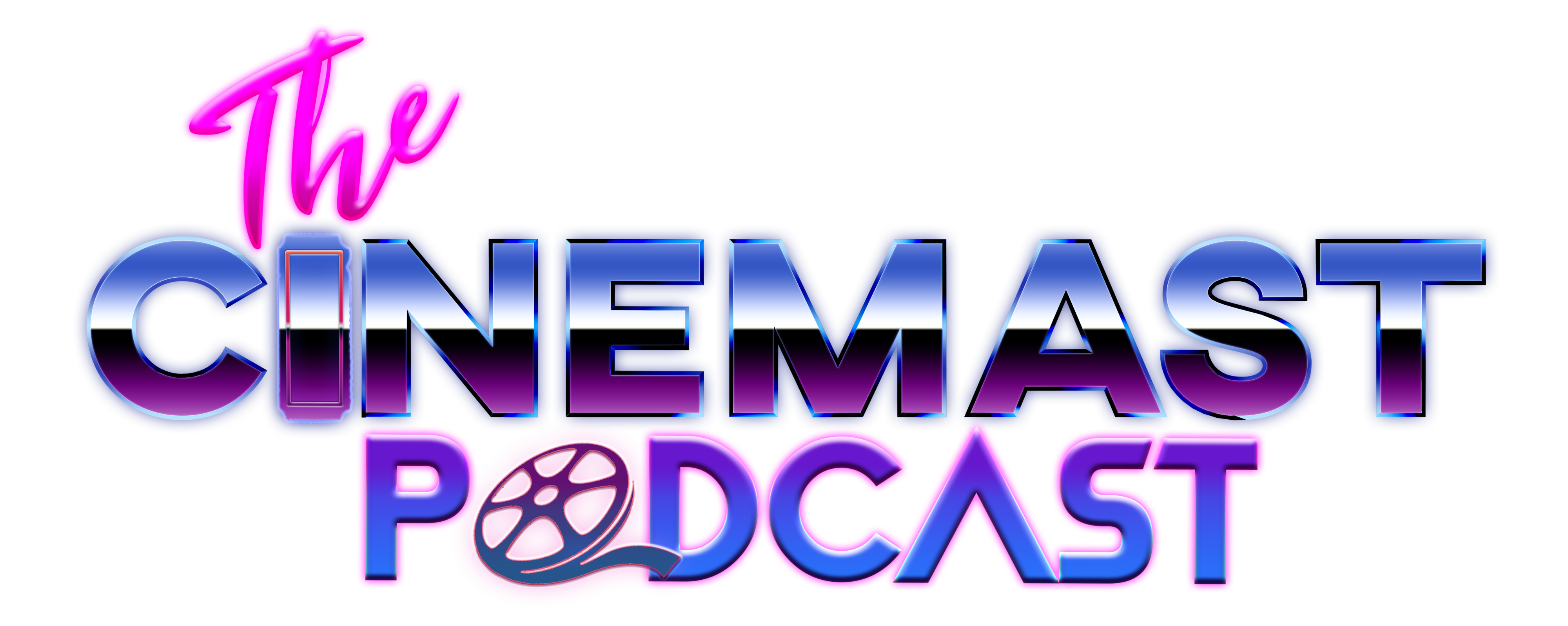DOPE (R)
Released by Open Road Films
Reviewed by Adam Mast
Rick Famuyiwa’s energetic comedy DOPE caught a lot of buzz at the Sundance Film Festival last January, and in fact, it sat alongside the excellent ME AND EARL AND THE DYING GIRL as one of the most talked about films at the festival. Having finally had a chance to see it, I really don’t get what all the fuss is about. Don’t get me wrong. The movie has an appealing cast, and it isn’t void of intriguing ideas that deal with race and perception, but overall, the film as a whole was a bit too labored and erratic in style for my taste.
DOPE starts in clever enough fashion by giving us three entirely different meanings for the title of the film via on-screen text. DOPE then jumps right in and presents its lead character, Malcolm (an engaging Shameik Moore). This sweet-natured teen is more interested in furthering his education, basking in the nostalgia of late-80s and early-90s hip hop, and hanging out and jamming with his like-minded friends—Diggy (Kiersey Clemons) and Jib (Tony Revolori)—than he is in gang banging and getting into trouble.
Having said that, Malcolm lives in Inglewood, CA, a rougher part of L.A. where society all but dictates that black youth engage in illegal activity in order to make a name for themselves. This isn’t Malcolm’s mindset though. His goal is to go to college and do something substantial with his life. Things go awry, however, after Malcolm gets caught up with the wrong crowd, and without giving too much away, he must ultimately make a choice: become the man he wants to be or become the man society expects him to be.
DOPE has a propulsive energy, and it’s clever how the film is able to delve into all three distinctive definitions of its prophetic title in equal measure. I suppose part of your appreciation and connection to DOPE will be dependent on how much you can relate to it. I’m a white male in his mid-40s, so there are obviously certain aspects of this movie that I can’t relate to. Having said that though, I was a bit of a nerd and all too awkward in my high school days, so I can certainly relate to that aspect of it. Heck, even in my 40s, I can still relate to that.
As a comedy, DOPE is hit and miss. Moore certainly does his best to keep the proceedings grounded. He’s a warm, likable screen presence, and even when he’s doing things that you wish he wouldn’t do, it’s a testament to his strength as an actor that you’re still willing to follow him through to the end of his chaotic, comical misadventures.
Some of the jokes in the picture are a bit mean spirited. For instance, the film goes out of its way to create a strong, likable lesbian supporting character in Diggy, only to diminish her worth by way of an off-color BOYS DON’T CRY joke. Other gags—including numerous pop culture hip hop references—are far easier to digest.
With its chaotic “comedy of errors” and “in over his head” vibe, DOPE has drawn some comparisons to Paul Brickman’s Tom Cruise-headlined RISKY BUSINESS. While there is a little bit of that in there, I also felt traces of the works of John Singleton (BOYS IN THE HOOD, HIGHER LEARNING), Spike Lee (DO THE RIGHT THING, SCHOOL DAZE), John Hughes (FERRIS BUELLER’S DAY OFF, SOME KIND OF WONDERFUL), and even the underappreciated Savage Steve Holland (BETTER OFF DEAD, HOW I GOT INTO COLLEGE). And with a handful of scenes where the dialogue tends to go off on random little tangents, there’s even a bit of Quentin Tarantino in there as well.
DOPE is so drenched in late-80s/early-90s nostalgia, that for the first ten minutes or so of the picture, I thought it was actually taking place during that era. Not there’s anything wrong with that. Famuyiwa’s fondness for that particular time period comes across in a big way, and it definitely gives DOPE a much welcome sense of charm.
DOPE earns bonus points for breaking down a handful of conventional stereotypes and going out of its way to give us a perspective of urban culture that we rarely see on screen, but the film as a whole tends to try too hard, and its often caustic and erratic nature sometimes diffuses the moments that work. In fact, DOPE tries so hard that there are stretches of it that feel downright phony. Look no further than a scene in which a trio of urban hoods take a moment out of a pending drug deal to philosophically discuss Obama and the current state of U.S. politics. On its own, it probably sounded provocative on paper, but in the context of the movie, it’s labored and groan-worthy. We get it. Just because these guys are thugs, they’re still smart, and they still have opinions on what’s going on in the world. However, because there’s no real depth to these particular characters, this is a moment that feels artificial and unearned.
By the end of DOPE, Malcolm breaks down the fourth wall and asks viewers to really think about what they’ve just witnessed. It’s a moment that should be far more profound than it actually is, because again, like many other moments in the picture, it doesn’t feel entirely earned. A shame too, because an engaging Moore works hard to earn such moments.
Still, you have to admire this movie for at least trying to use comedy as a way to address important, real life issues. Its something that 2014’s DEAR WHITE PEOPLE did to strong effect, and while DOPE doesn’t quite get there, it’s still pretty dope for making an effort.






